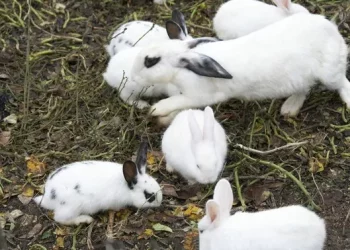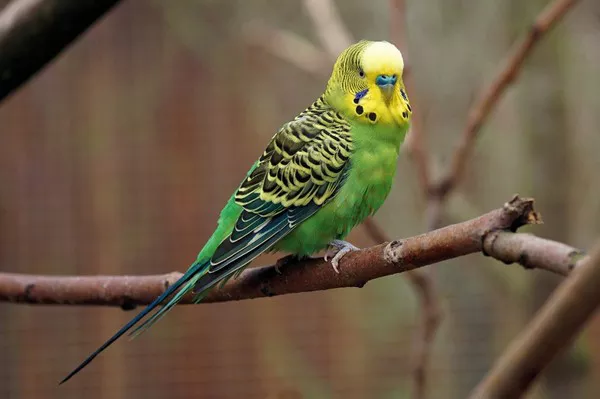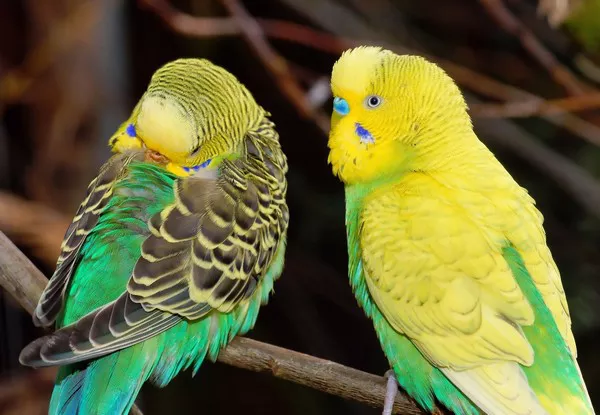Rabbits are adorable, gentle creatures that make wonderful pets. Their diets play a crucial role in maintaining their health and well-being. As a rabbit owner, you might wonder about what types of food are suitable for your bunny. Among the many questions that arise, one common query is: can you feed rabbits dog food? The short answer is no, rabbits should never be fed dog food. However, this question warrants a deeper look into the diets of both rabbits and dogs, as well as the potential consequences of feeding rabbits dog food.
In this article, we’ll explore why dog food is not appropriate for rabbits, what rabbits should be eating, and the potential risks and health problems that can arise from feeding your rabbit food designed for dogs. We’ll also discuss what to feed rabbits for optimal health and how to provide them with a balanced and nutritious diet.
Understanding the Digestive Systems of Rabbits and Dogs
The Rabbit Digestive System
Rabbits are herbivores, meaning their bodies are adapted to process plant-based foods. Their digestive systems are specially designed for a high-fiber diet. Unlike carnivores, such as dogs, rabbits have long intestines and a unique system for processing food efficiently. They rely on a high intake of fiber to keep their digestive system running smoothly.
One of the most important aspects of a rabbit’s digestive system is its cecum, which ferments the fiber in the rabbit’s food to produce essential nutrients. Rabbits also practice coprophagy, meaning they eat their own feces (specifically, soft pellets called cecotropes) to absorb more nutrients from their food.
The Dog Digestive System
Dogs, on the other hand, are omnivores with a digestive system designed to process both animal and plant-based foods. Unlike rabbits, dogs have shorter intestines and lack the specialized cecum that allows rabbits to break down large amounts of fiber. Dogs’ diets are usually higher in protein, fat, and calories, as they are primarily carnivores by nature.
Dogs also lack the need for high amounts of fiber in their diets. While fiber can be beneficial to dogs for digestive health, it’s not the same as it is for rabbits. Thus, the nutritional needs of dogs are vastly different from those of rabbits.
Given these significant differences in digestive systems, the types of food that are safe and beneficial for each species are also very different. What is suitable for a dog is not necessarily safe for a rabbit.
Nutritional Differences Between Dog Food and Rabbit Food
Nutritional Requirements of Rabbits
Rabbits require a diet that is primarily made up of fresh hay, vegetables, and a small amount of pellets. These foods provide the fiber, vitamins, and minerals that rabbits need to thrive. The essential components of a rabbit’s diet include:
Hay: Hay, especially timothy hay, is the foundation of a rabbit’s diet. It should be available at all times to ensure proper digestion and prevent obesity. The fiber content in hay helps to keep the rabbit’s digestive system functioning properly.
Fresh Vegetables: Leafy greens, such as romaine lettuce, kale, and cilantro, provide essential vitamins and minerals, as well as hydration. However, vegetables should be introduced gradually to avoid digestive upset.
Pellets: High-quality rabbit pellets, made from timothy hay and other plant-based ingredients, can be given in small quantities to provide additional nutrients. However, pellets should not make up the majority of the diet.
Fresh Water: Fresh water should always be available to your rabbit. Dehydration can lead to serious health issues in rabbits.
Rabbits also need a diet low in sugar and fat, as excessive amounts of these can lead to obesity and other health problems.
Nutritional Requirements of Dogs
Dogs, being omnivores, have a more varied diet that includes meat, grains, vegetables, and some fruits. Dog food is designed to meet the nutritional needs of a dog’s body, which include:
High Protein: Dogs need a diet rich in protein to support muscle growth, energy levels, and overall health. Protein sources typically include meat (chicken, beef, fish, etc.) and sometimes plant-based proteins like peas or soy.
Fat: Fat is an important source of energy for dogs. Dog food contains fats that help support skin and coat health and maintain energy levels.
Carbohydrates and Fiber: While dogs do not require as much fiber as rabbits, carbohydrates and fiber help support healthy digestion in dogs. Dog food often contains grains like rice or barley, as well as some vegetables and fruits.
Vitamins and Minerals: Dog food is fortified with vitamins and minerals, such as calcium, phosphorus, and vitamins A and D, to meet the dog’s nutritional needs.
Given the significant differences in the nutritional content of dog food and rabbit food, feeding a rabbit dog food could lead to serious health problems.
Why Dog Food is Harmful to Rabbits
1. High Protein and Fat Content
One of the main reasons why dog food is unsuitable for rabbits is its high protein and fat content. Dog food is designed to meet the dietary needs of carnivores and omnivores, which means it contains much higher levels of protein and fat than a rabbit’s digestive system can handle. Rabbits have a delicate balance in their diets, and too much protein or fat can cause serious digestive issues, including:
Kidney Problems: High-protein diets can strain a rabbit’s kidneys, leading to kidney disease over time.
Obesity: A high-fat diet can lead to obesity in rabbits, which can result in heart problems, diabetes, and a shortened lifespan.
Diarrhea and Digestive Upset: Rabbits have sensitive digestive systems, and a diet too rich in protein and fat can cause gastrointestinal issues such as diarrhea, bloating, or gastrointestinal stasis, which is a life-threatening condition.
2. Lack of Fiber
Fiber is crucial to a rabbit’s diet for proper digestion. Dog food lacks the high fiber content that rabbits need for healthy digestion. Feeding a rabbit dog food instead of high-fiber hay and vegetables can lead to:
Digestive Stasis: Without enough fiber, rabbits are at risk of developing gastrointestinal stasis, a condition where the digestive system slows down or stops completely. This can be fatal if not treated promptly.
Gut Imbalance: A lack of fiber disrupts the healthy balance of gut bacteria in rabbits, leading to further digestive problems.
3. Harmful Additives and Ingredients
Many commercial dog foods contain artificial flavors, preservatives, and other additives that are not suitable for rabbits. Ingredients like salt, sugar, and certain spices can cause toxicity or digestive issues in rabbits. For example, excessive salt intake can lead to dehydration and kidney problems, while sugar can contribute to obesity and dental disease.
4. Imbalance of Essential Nutrients
Dog food is formulated with the needs of dogs in mind, which means it does not contain the appropriate balance of vitamins and minerals required by rabbits. A rabbit that is fed dog food may develop deficiencies or imbalances in essential nutrients such as:
Calcium: Rabbits need calcium for healthy bones and teeth, but an imbalance (too much or too little) can lead to problems such as bladder stones or skeletal issues.
Vitamin A: While rabbits need vitamin A, the form found in dog food may not be appropriate for rabbits, leading to potential toxicity or deficiency.
What to Feed Rabbits: A Balanced Diet
Now that we know why dog food is harmful to rabbits, let’s explore what rabbits should be eating for a balanced diet. A rabbit’s diet should consist primarily of:
1. Hay
Hay is the most important part of a rabbit’s diet. It provides the fiber necessary for healthy digestion. There are several types of hay, but timothy hay is the most commonly recommended for adult rabbits. Other types include:
- Alfalfa Hay (for young rabbits or those with specific dietary needs)
- Oat Hay
- Meadow Hay
2. Fresh Vegetables
Leafy greens such as romaine lettuce, spinach, cilantro, parsley, and kale are excellent choices for your rabbit. Vegetables should be varied and fresh, and it’s important to avoid iceberg lettuce, as it has little nutritional value and can cause digestive upset.
3. Pellets
Pellets should only be given in moderation. Choose high-quality pellets made from hay (such as timothy hay) and avoid those with added sugars, seeds, or dried fruits. Pellets should be a supplement to fresh hay and vegetables, not the main component of your rabbit’s diet.
4. Fresh Water
Always provide fresh water to your rabbit. They need plenty of water to stay hydrated and support their digestive health.
5. Occasional Treats
You can occasionally offer small amounts of safe fruits (like apples, bananas, or berries) as treats, but these should only be given in moderation due to their sugar content. Avoid high-sugar treats or processed foods.
Conclusion
In summary, rabbits should never be fed dog food. Dog food is designed for omnivorous animals like dogs, and it contains high amounts of protein, fat, and other ingredients that are unsuitable for rabbits. Feeding dog food to a rabbit can lead to a range of health problems, including digestive issues, obesity, kidney damage, and nutrient imbalances.
Instead, focus on providing your rabbit with a diet that mimics its natural eating habits: a high-fiber diet consisting of fresh hay, vegetables, and high-quality pellets. By offering a balanced, nutritious diet tailored to a rabbit’s specific needs, you can help ensure that your bunny lives a long, healthy, and happy life.
Always consult with a veterinarian if you’re unsure about your rabbit’s diet or if you notice any signs of illness.
Related Topics:

























